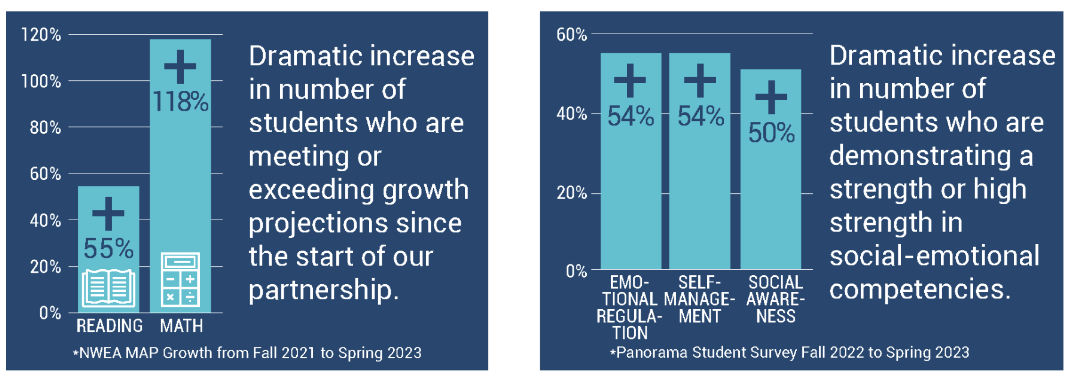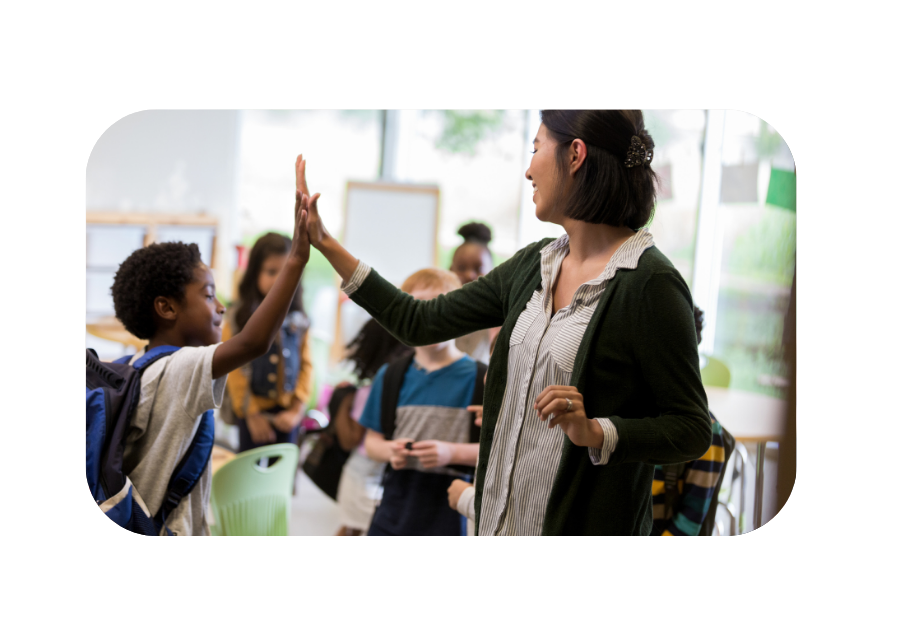Our Reach in 2024
We're proud to walk alongside our school partners, from laying the groundwork to establishing a legacy of student success.
Intervention Plans Created
MTSS Meetings Logged
Students
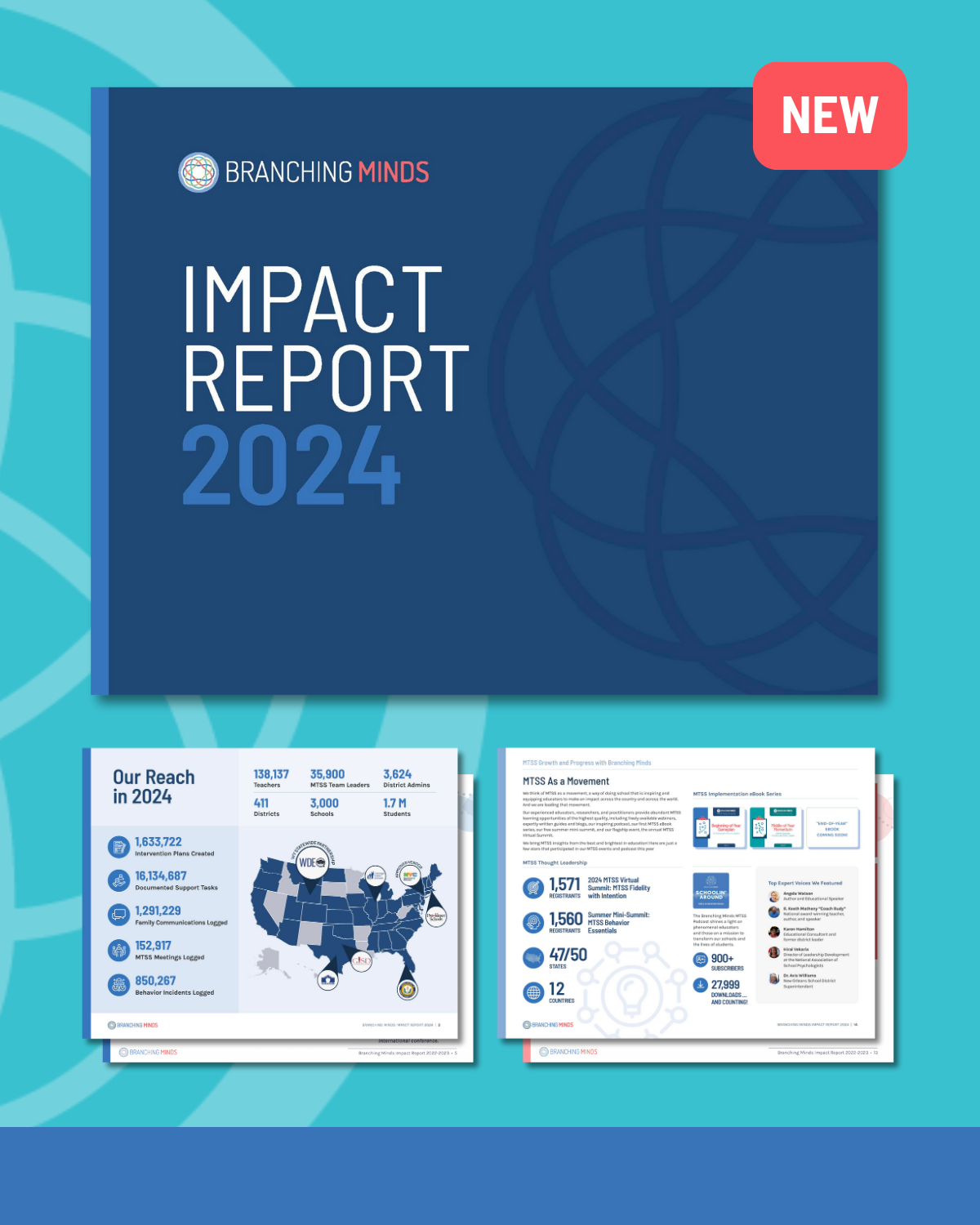
Branching Minds Impact Report 2024
The proof is in the numbers. See how districts are improving their MTSS practice and student outcomes with our MTSS platform.
Success at Every Stage of Implementation
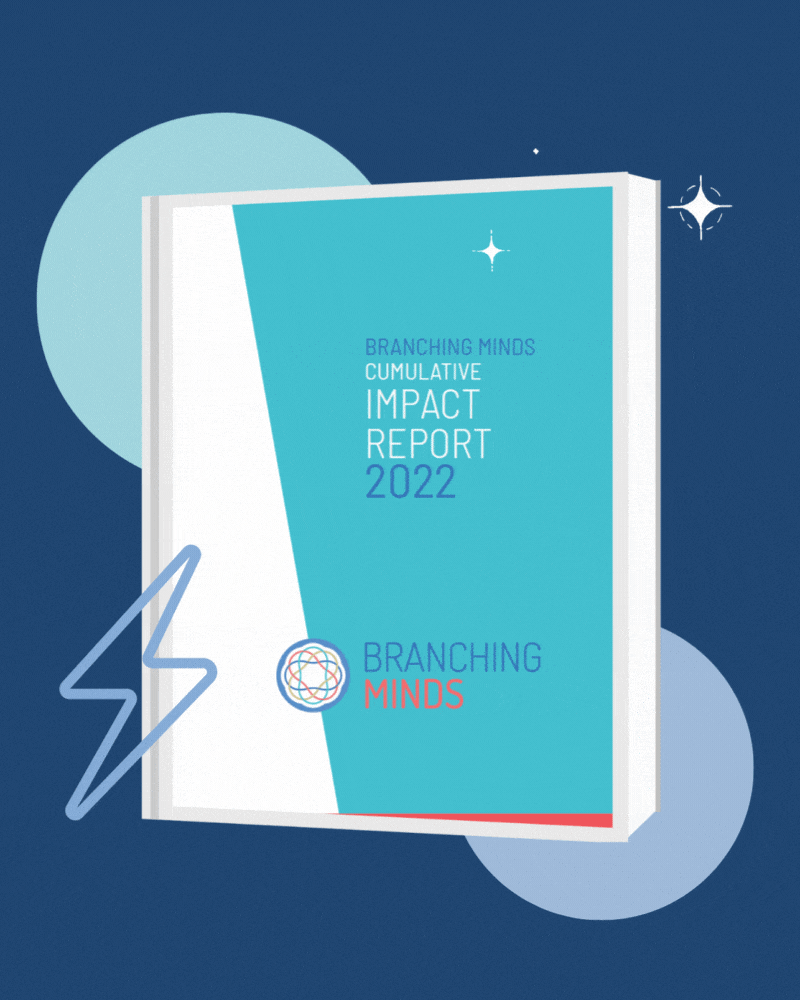
Branching Minds Cumulative Impact Report 2022
Fill out the form to access the Branching Minds Cumulative Impact Report.
You will learn about our reach, our impact, the positive students' outcomes that we have been part of despite the pandemic years, and much more.
From Spreadsheets to Success: How Roanoke Rapids Transformed Literacy with MTSS
Purpose-Built MTSS Management Solution
Measurable Time Savings
Allow educators to focus their time on what matters most.
Improved Student Outcomes
Increase student achievement with effective interventions and standardized processes.
Higher Teacher Satisfaction
Teachers with Branching Minds are less stressed and feel confident in their roles.
Large Cost Savings
A 12,000-student district can achieve 426% Return on Investment in 3 years and break even in 3.4 months.
District Success Using Branching Minds

We found when students went from one campus to another, [intervention] information was not following them. And that next campus was just essentially starting over and wasting time. And so...that's when I started thinking there has to be a better way.
Learn More
Pennie Graeber At-Risk and RTI Coordinator, Waco ISD, TX

In the last year we’ve had a huge amount of growth as far as being able to be more responsive to students needs. Every decision that we make, we can make because of the data that Branching Minds helps us collect and analyze.
Learn More
Jenn Bognar Director of Exceptional Learning, Duneland School, IN
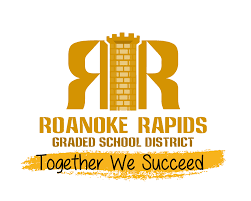
For the first time, [our MTSS triangle] is as close to ideal triangle, than it has ever been.
Learn More
Krissy Martin MTSS Coordinator, Roanoke Rapids Graded School District, NC

We have been steeped in MTSS for many years in our district, and we are very learner-centered. Being able to collect all of this data that we were gathering on learners, we were seeking a solution to paint a really good picture of our learners in an easier way than we were doing it.
Learn More
Jenn Maichin Mineola High School Assistant Principal, NY
Research-Backed MTSS That Works
Branching Minds combines learning science with teacher-friendly technology to boost student achievement. Researchers from the University of Wisconsin-Madison found it meets ESSA Level II standards, improving reading and math outcomes.
Based on the What Works Clearinghouse's improvement index, grades 3-5 students with active intervention plans showed notable gains, with MAP Growth scores rising by 4 percentile points in math and over 5 in reading.
Award-winning MTSS Technology & Support




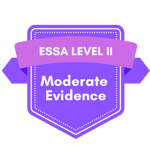


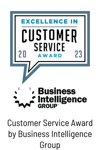








PARTNERSHIP IMPACT SPOTLIGHT - Charlotte-Mecklenburg Schools, NC

In just two years, Charlotte-Mecklenburg Schools saw:
-
A dramatic increase in the number of students who met or exceeded growth expectations on NWEA MAP Growth, including a 55% increase in reading and 118% increase in math between Fall 2021 and Spring 2023.
-
A dramatic increase in the number of students who are demonstrating a strength or high strength in social-emotional competencies, including a 54% increase in both emotional regulation and self-management and a 50% increase in social awareness.
